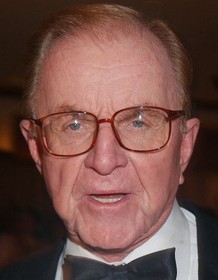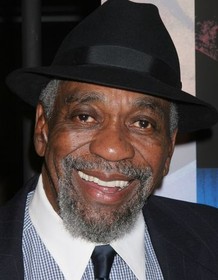John McLaughlin
follow


Anticipating the tempestuous partisan political mediascape of the cable news wars by more than a decade, John McLaughlin made his strident monotone delivery of institutional conservative views a regular sound in the Washington, D.C. noise machine, starting in 1982. A one-time Jesuit priest and failed congressional candidate, McLaughlin began his career as a low-level speechwriter for President Richard Nixon, and in the wake of Watergate, began a public brushfire amid a firestorm by extolling Nixon's virtues even as the unraveling scandal suggested far differently. Upon the ouster of Republicans from power in 1976, he found his way into journalism. With conservative politics reemerging in the country, he began writing a column for National Review in 1981 and the next year started the syndicated weekly roundtable program "The McLaughlin Group" (1982-2016). His trademark gruff, fast-paced moderation of discussions, and not infrequent pat dismissals of views he disagreed with, made the show relatively lively for the then-staid American news landscape. He faced scandal himself when a former office manager sued him in 1988, alleging he had sexually harassed her and other employees - conspicuous for a pundit routinely moralizing the "family values" trope. He expanded his media imprint with a more staid interview show, "McLaughlin One on One" (1984-2013), as well as an eponymous CNBC show from 1989 through 1994. His unique style made him gimmick booking for TV and film producers, often playing himself as a chorus device in politically themed fare such as "Murphy Brown" (CBS, 1988-1998) and the presidential-themed feature "Dave" (1993). McLaughlin remained a stalwart, if less distinctive, voice of the weekend American talking-head parade even into his eighties, with news channels such as Fox News and vast tracts of talk radio long since forwarding his standard of fairly depthless exchanges of talking points as news analysis.
Create Post
Post


How much you willing to pay
If power lunch with John McLaughlin
Sure


Bid for lunch


Date





